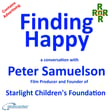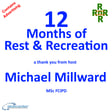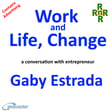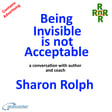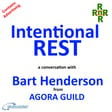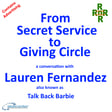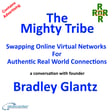
Building a Hospital – a conversation with Dr Matee Rajput
God will never make you poor, if you give to the poor
Dr Matee Rajput is the Surgical Director at KSL Clinic, and one of the leading hair transplant surgeons in the UK.
Dr Matee is also, with his four brothers a founder of the SAMR Trust. a charity that was inspired by the way his father lived his life.
In this episode of the Abeceder work life balance podcast Rest and Recreation Dr Matee explains to Michael Millward how his father instilled in his children the importance of helping people who are less fortunate than yourself.
Dr Matee tells the family story about how his father’s experience led him to adopting a life devoted to helping others, and the commitment he and his brothers made when they became doctors to following his example.
Building a hospital in the village that he grew up in was a dream for his father. Following his death his sons decided to make the dream a reality.
Dr Matee describes the experience of building the hospital in Pakistan and why and how it is developing.
The episode will inspire you to make your dreams a reality.
Audience Offers
Rest and Recreation is made on Zencastr, because creating podcasts on Zencastr is so easy, you can as well by visiting Zencastr and using our offer code ABECEDER.
Travel – at trade prices to Pakistan or anywhere in the world at trade prices on trains, flights, hotels, and holidays as members of The Ultimate Travel Club.
Health – York Test provides an Annual Health Test. An experienced phlebotomist will complete a full blood draw at your home or workplace. Hospital standard tests covering 39 different health markers are carried out in a UKAS-accredited and CQC-compliant laboratory.
Visit York Test and use this discount code REST25.
Tech Problems? – Visit Three for information about business and personal telecom solutions from Three, and the special offers available when you quote our referral code WPFNUQHU.
If you have liked this episode of Rest and Recreation, please give it a like and download it. To make sure you do not miss future editions please subscribe.
Remember, the aim of all the podcasts produced by Abeceder is not to tell you what to think, but we do hope to make you think!
Being a Guest
If you would like to be a guest on Rest and Recreation, please contact Abeceder.
Matchmaker.fm introduce many guests to Rest and Recreation. Matchmaker.fm is where great hosts and even greater guests are matched, and fantastic podcasts are hatched. Use code MILW10 for a discount on membership.
We recommend that potential guests take one of the podcasting guest training programmes available from Work Place Learning Centre.
Thank you to you for listening.
We appreciate every like, download, and subscription.



